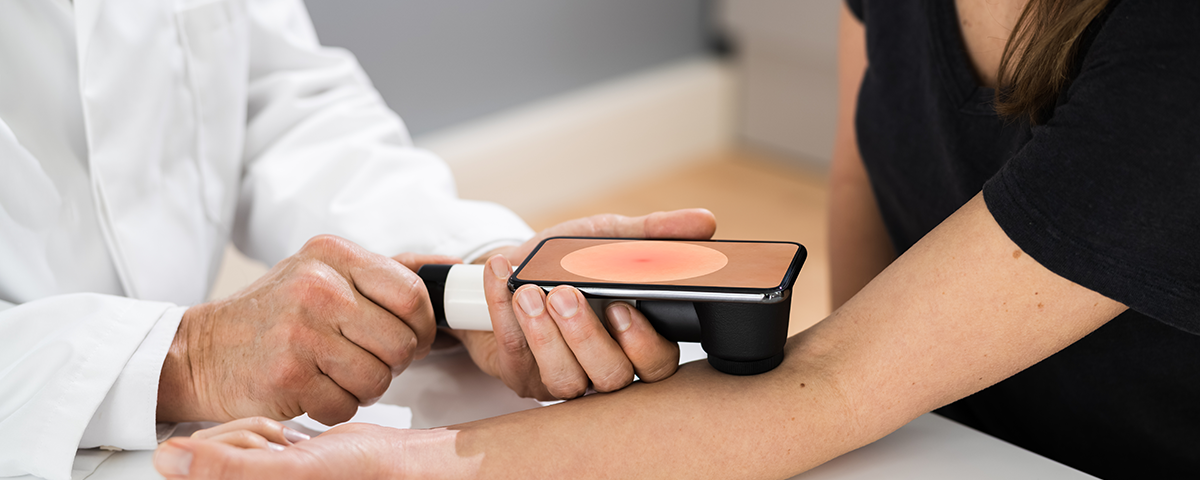
Trial Results: ECOG-ACRIN research round-up – Spring 2022
March 24, 2022
Now Enrolling: The EAQ202 clinical trial seeks to provide young people with cancer a better way to report their experiences during cancer treatment
March 24, 2022Ongoing Trial: The BAMM2 trial (EA6191) explores adding the drug hydroxychloroquine to standard treatment for certain patients with melanoma that has progressed after immunotherapy

The recent results of the DREAMseq (EA6134) phase 3 trial changed clinical practice. This trial found a 20% increase in two-year survival in patients with BRAF V600-mutated melanoma with a treatment sequence that begins with the combination of nivolumab (Opdivo®) and ipilimumab (Yervoy®) immunotherapy followed by combination dabrafenib (Tafinlar®) and trametinib (Mekinist®) targeted therapy if disease progression occurs versus beginning with targeted therapy. As a result, it is now common to give dabrafenib-trametinib treatment to patients if melanoma continues to grow and spread after immunotherapy.
Many patients with melanoma that does not respond well to immunotherapy drugs have elevated lactate dehydrogenase (LDH) levels in their blood. Typically, patients with elevated LDH do not benefit very much from dabrafenib-trametinib treatment, leaving them with a poor prognosis.
Against this backdrop, ECOG-ACRIN researchers have opened a new phase 2 trial specifically for advanced melanoma patients with elevated LDH levels in their blood after immunotherapy. The EA6191/BAMM2 trial will help researchers learn if adding hydroxychloroquine (HCQ) to this usual treatment may work better than dabrafenib and trametinib alone to shrink and stabilize the cancer for patients with elevated LDH.
Patients are eligible for this study if they have stage IIIC or stage IV melanoma (has spread to nearby tissue or lymph nodes and is not able to be removed by surgery). Tumor testing shows that the melanoma carries either the BRAF V600E or BRAF V600K tumor gene mutation. The melanoma is still present after treatment with a certain kind of immunotherapy called immune checkpoint inhibitor drugs. The patient has elevated levels of serum LDH detected in their blood. Patients with brain metastases are allowed on study following treatment with radiation therapy.
BAMM2 is looking to enroll 84 patients split into two groups. Patients will be randomly assigned by a computer to receive either the usual treatment of dabrafenib and trametinib alone or the usual treatment plus HCQ. Dabrafenib and trametinib are oral medications given twice per day. Patients in the HCQ group will also be given HCQ pills twice per day. Patients will continue on study treatment for up to 2 years until it stops working or they have unacceptable side effects. If treatment is successful, it may be extended beyond 2 years.
EA6191/BAMM2 is based on the findings of the single-arm BAMM study, which tested dabrafenib, trametinib, and HCQ in patients with stage IV BRAF-mutant melanoma. Although the BAMM study was not specifically designed to look at patients with elevated LDH, the response rate and length of benefit when HCQ was added seemed to be better than when these patients were treated with dabrafenib and trametinib alone.
Researchers hope that this randomized trial will identify a potential new drug combination that meets an unmet need for this group of patients with a poor prognosis.
The study is led by Ravi Amaravadi, MD of the University of Pennsylvania.
Learn more about the EA6191 study at ecog-acrin.org

